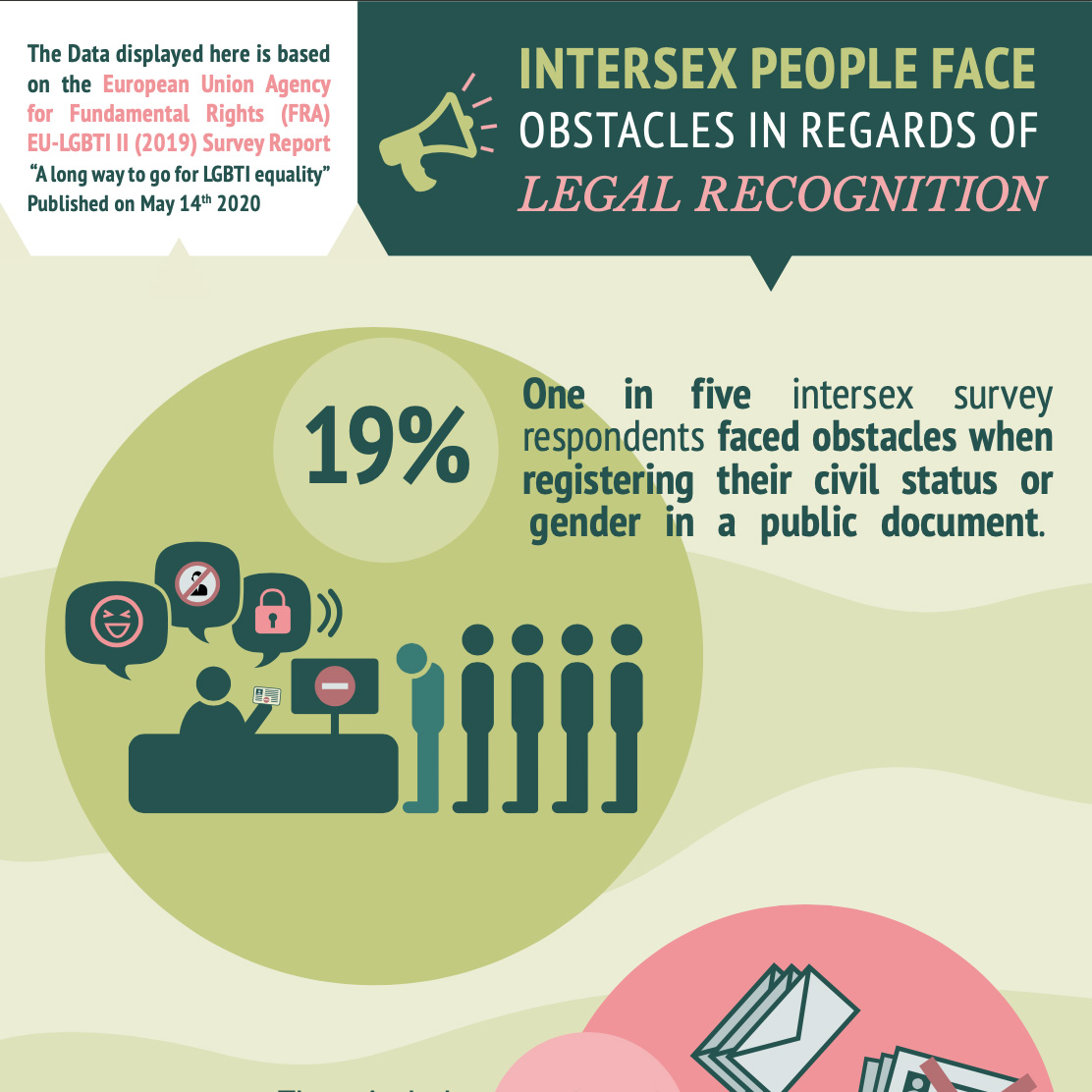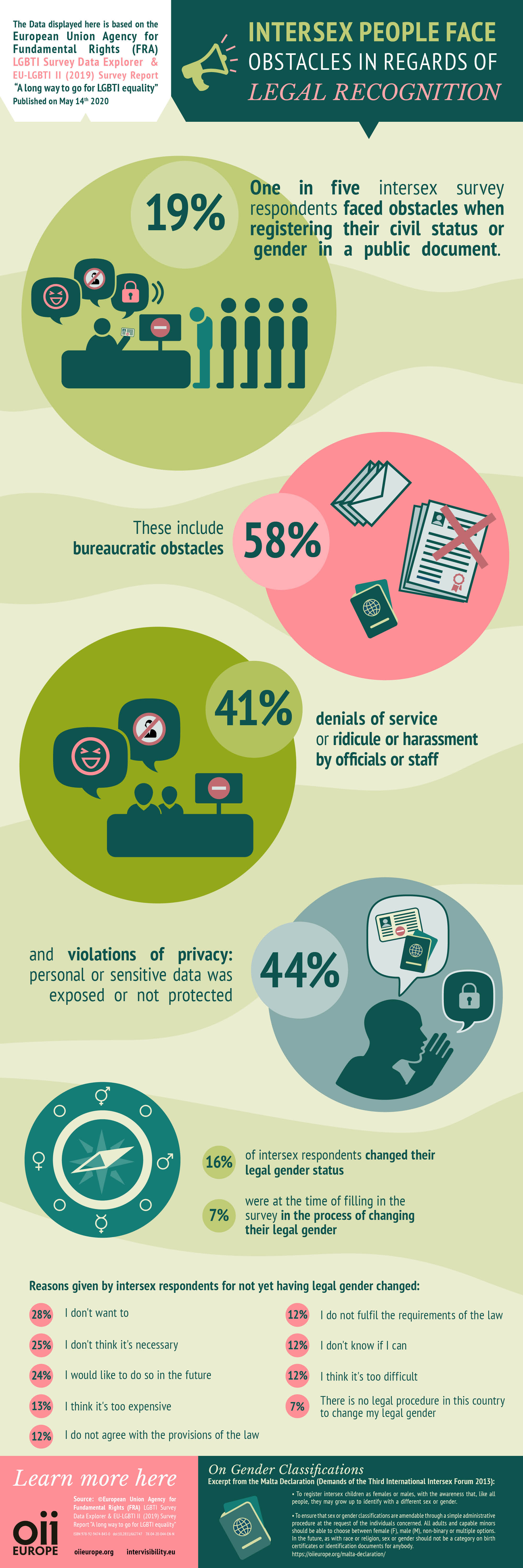Everyone has the right to respect for their private life. This is what we read in the EU Charter of Fundamental Rights (Article 7) and in the European Convention on Human Rights (Article 8).
Gender identity is a crucial aspect in the development of everyones self-image, and intersex people, like anyone else, have the right to access legal gender recognition in a fair and simple manner, without any discrimination.
Some intersex people reject the gender they were assigned to at birth. Some cannot choose the marker right for them and only find it available later (in countries where a third gender marker is introduced). Some just find their identity evolving over time and seek for a marker which reflects their personal development.
However, systems currently in place often hinder intersex people’s self-determination (see infographic below), especially when preventing them from a multiple change of gender marker, or when imposing medical requirements as the basis for what should be instead a free and private choice.
This is why we advocate for removing all the obstacles that intersex people still face, thus calling on all the European countries to:
- Take all necessary legislative, administrative and other measures to ensure that procedures exist whereby all State-issued identity papers which indicate a person’s gender/sex – including birth certificates, passports, electoral records and other documents – reflect the person’s profound self-defined gender identity;
- Ensure that such procedures are efficient, fair and non-discriminatory, and respect the dignity and privacy of the person concerned.
See The Yogyakarta Principles, 2006, as complemented by The Yogyakarta Principles plus 10, 2017 which added explicit reference to the sex characteristics, Principle 3
Text contained in the infographic on “Legal recognition” follows here:
One in five intersex survey respondents (19 %) faced obstacles when registering their civil status or gender in a public document. These include bureaucratic obstacles (58%), denials of service or ridicule by staff (41 %), and violations of privacy (44 %): Personal or sensitive data was exposed or not protected.
16% of intersex respondents changed their legal gender status,
7% were at the time of filling in the survey in the process of changing their legal gender.
Reasons given by intersex respondents for not yet having legal gender changed:
- I don’t want to 28%
- I don’t think it’s necessary 25%
- I would like to do so in the future 24%
- I think it’s too expensive 13%
- I do not agree with the provisions of the law 12%
- I do not fulfil the requirements of the law 12%
- I don’t know if I can 12%
- I think it’s too difficult 12%
- There is no legal procedure in this country to change my legal gender 7%
On Gender Classifications
Excerpt from the Malta Declaration (Demands of the Third International Intersex Forum 2013):
• To register intersex children as females or males, with the awareness that, like all people, they may grow up to identify with a different sex or gender.
• To ensure that sex or gender classifications are amendable through a simple administrative procedure at the request of the individuals concerned. All adults and capable minors should be able to choose between female (F), male (M), non-binary or multiple options. In the future, as with race or religion, sex or gender should not be a category on birth certificates or identification documents for anybody.
https://www.oiieurope.org/malta-declaration/
Learn more here:
https://www.oiieurope.org (this page)
https://www.intervisibility.eu
Source of Data displayed: ©European Union Agency for Fundamental Rights (FRA) LGBTI Survey Data Explorer & EU-LGBTI II (2019) Survey Report “A long way to go for LGBTI equality” ISBN 978-92-9474-843-0 • doi:10.2811/667747 • TK-04-20-044-EN-N



